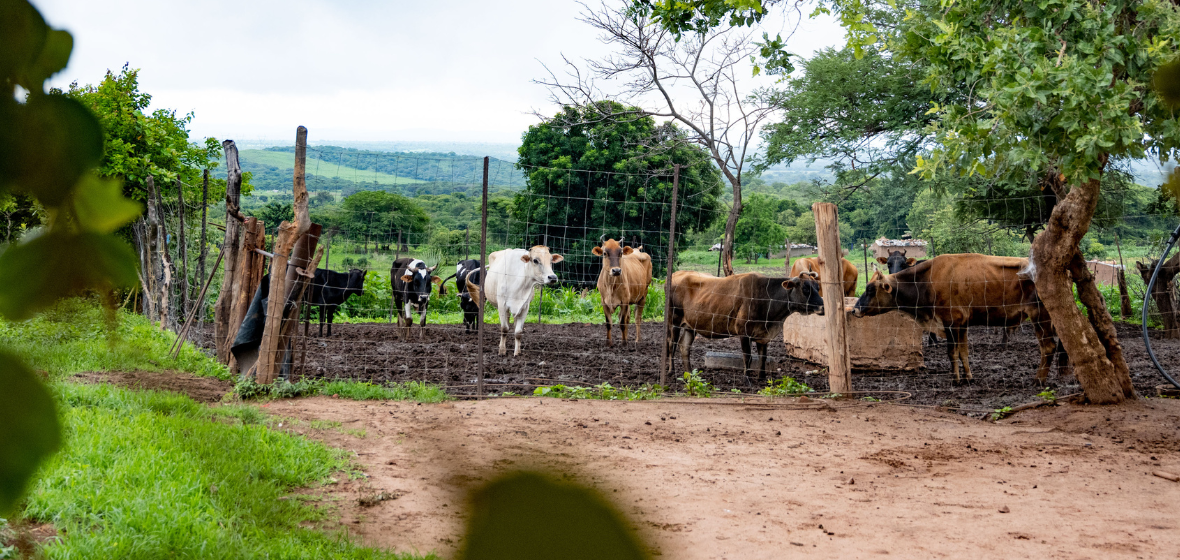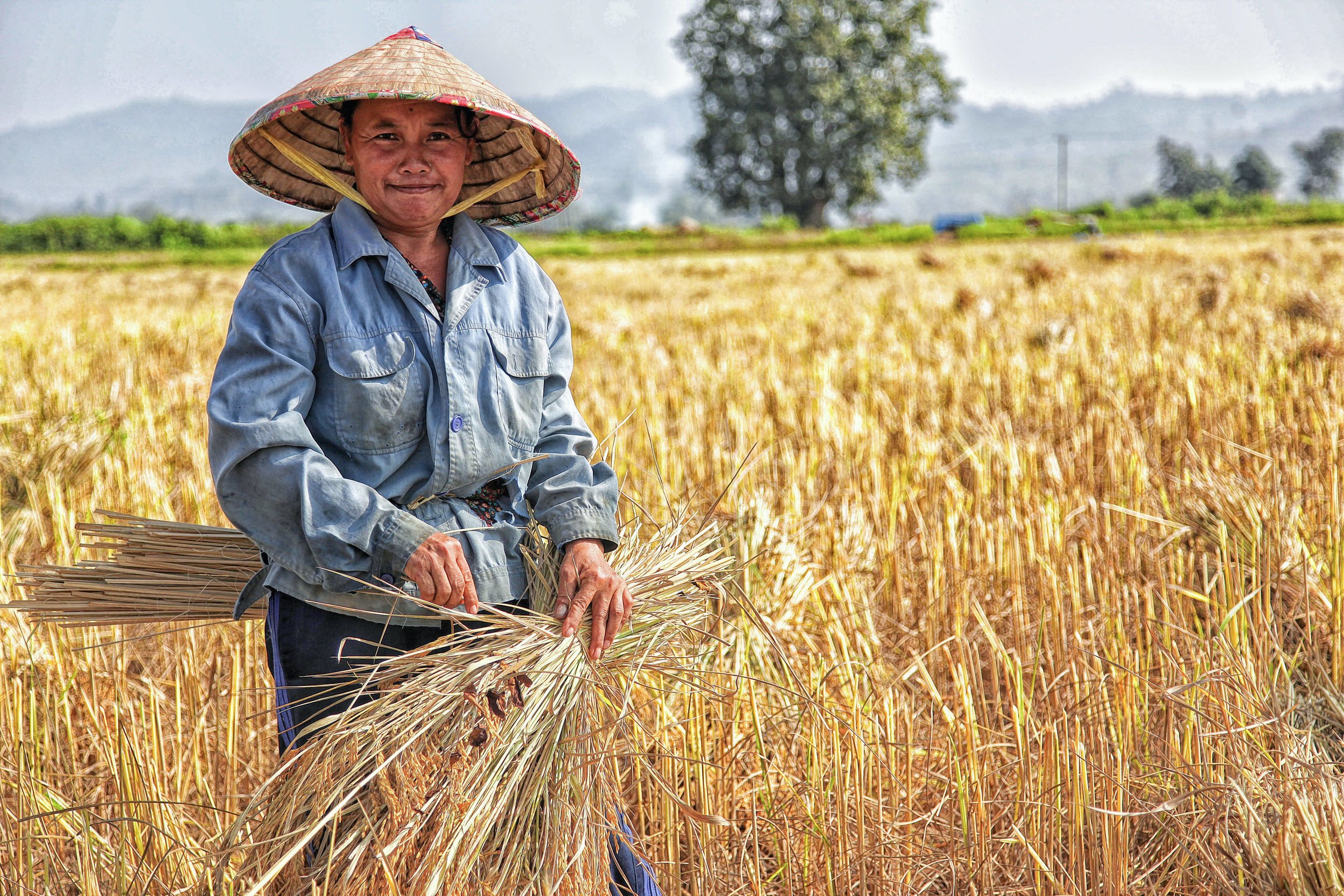
BLOGS, ARTICLES AND NEWS
Get updates directly from the CA4SH Global team and stakeholders
CA4SH at AFSHS2024: Multistakeholder action for Africa’s soils
From 7-8 May 2024, African leaders and stakeholders came together to reverse soil degradation and map a joint way forward for the continent by putting farmers first.
The Africa Fertilizer and Soil Health Summit (AFSHS) was raised to address changes in the agricultural sector in Africa since the 2006 Abuja Declaration on Fertilizer for the Africa Green Revolution. Since the Abuja Declaration, sustainable soil management has become an increasingly recognized priority for reversing land degradation and contributing to the climate adaptation strategies of African countries.
As active proponents of soil health to address all 17 Sustainable Development Goals, CA4SH participated in and hosted several sessions at the AFSHS to bridge science and policy spaces with examples of concerted action on the ground.
Biome Makers' 2023 Impact Report Highlights Innovations in Regenerative Agriculture
Biome Makers, a global agtech company, announces the release of its 2023 Impact Report, which details the company's significant contributions to regenerative agriculture and soil health over the past year. The report highlights Biome Makers’ commitment to sustainability and the innovative use of its BeCrop technology.
My Story: Mastering Soil and Land Health Evaluation Process
Understanding of African ecosystems; initiative that establishes baseline and monitoring for land degradation assessment and rehabilitation
Story and photo essay by: Anthony Ochieng Onyango and Faith Tuarari
What Does “Soil Health” Actually Mean? How Paradigm Shifts the Way We Think About Our Most Valuable Resource
In a recent review of contemporary, peer-reviewed literature, CIFOR-ICRAF Land Health Data Analyst, Eva Wanjiru Murigi uncovered nuances of how scientific concepts of soil affects how we value and measure soil health, and why.
Harnessing the Power of Biochar for Global Soil Health and Beyond: Insights from the International Biochar Initiative
In an era where soil degradation threatens food security and environmental stability worldwide, the International Biochar Initiative (IBI) is at the forefront of promoting biochar as a circular solution. The 2023 Global Biochar Market Report, co-authored with the US Biochar Initiative (USBI), presents an in-depth analysis of the biochar industry’s growth and its crucial role in improving soil health on a global scale.
CA4SH Finance Webinar: Investing in soil health from the ground up
From afar, scaling soil health by switching from traditional monocrop agricultural systems to regenerative systems may seem as easy as planting the right plants in the right spot. However transitioning to new systems usually sees farmers’ yields decrease before they increase, which can be a limiting factor for farmers who don’t have a financial cushion to fall back on. Support is needed to help them bridge the gap.
CA4SH is a multi-stakeholder partnership of member states, the private sector, research institutions, civil society, farmer organizations, multilateral organizations, NGOs, and more. Drawing on this wealth of knowledge, we organized the second installation of our 2024 Webinar Series: The road ahead for soil health action to explore different mechanisms to invest in soil health, making sure these investments reach smallholder farmers.
Op-Ed: The Role of Young People in Defending Soil Health
Worldwide, agriculture employs the largest portion of youth (around 60% in Africa, for example), making soil health central to youth empowerment and food security in developing countries where agriculture's contribution to GDP exceeds 20%. Youth can participate in advocacy for soil and land health through political fora, techno-communications, community action, research and more.
Roël D. Houdanon, Founder & Chief Technical Advisor of the Land and Health Association, shares his thoughts on avenues for youth participation and his unique story of moving through advocacy spaces and championing soil health, as well as a case study for youth action on the ground.
2023 In Review: CA4SH Launches its Inaugural Annual Report
For the Coalition of Action 4 Soil Health (CA4SH), 2023 was marked by continual learning and exponential growth, and we are celebrating by launching the inaugural Annual Report. Highlights include a reflection on our roots and growing the Coalition (which now has over 170 multistakeholder members and counting!), zooming in on key engagements, advocating for soil health in the climate agenda, achievements, lessons learned, and a look at what’s to come.
Scaling Farmer-Centered Solutions in Africa from the Soil Up
March 14th, Accelerating Nature-based Solutions Conference: In a call to address the pressing issue of soil degradation and its detrimental effects on food systems and livelihoods, a recent event co-hosted by the Coalition of Action 4 Soil Health (CA4SH) and CIFOR-ICRAF underscored the urgency for multi-stakeholder action to promote healthy soil ecosystems across Africa. The gathering, which brought together diverse stakeholders from farming communities, science, policy, development, conservation, and the private sector, emphasized the critical role of soil in sustainable and regenerative food systems.
Farmers in East Africa are prioritising climate action in food systems
Scaling innovative solutions, such as regenerative agriculture, has a critical role in facilitating the necessary shift required to address climate change and its effects on fragile food systems.
Farmers in East Africa are making the choice of adopting this approach of agriculture, in combination with new technologies and organic inputs to improve crop yields and replenish soils. This renewed understanding of the interplay between soil health and healthy yields is enabling the transition to sustainable agricultural practices and policy in the region.
CA4SH Policy Webinar: Creating an Enabling Environment for Soil Health Post-COP28
CA4SH is a multi stakeholder partnership of member states, the private sector, research institutions, civil society, farmer organizations, multilateral organizations, NGOs, and more. Drawing on this wealth of knowledge, we organized the first installation of our 2024 Webinar Series: The road ahead for soil health action.
Celebrating IWD 2024: The Role of Gender in Scaling Soil Health Globally
Women and gender-diverse people around the World are a non-negotiable, indispensable part of food systems and efforts to scale soil health, globally.
For International Women’s Day 2024, we reached out to powerhouse women from across the CA4SH network who are working with NGOs, farmer cooperatives, research, public and private domains, and more, to deliver key messages on why gender inclusion is so important to scaling soil health.
Call for proposals: Apply to become a SIANI expert group
SIANI is glad to announce that the call for new expert groups 2024-25 is now open. If you are a cross-sector team planning a project to transform food systems, you may be eligible for funding as a SIANI expert group. Submit your application by 19 May 2024.
CA4SH at UNEA-6: Multistakeholder action to foster an enabling science, policy and business environment to scale soil health globally
From 26 February to 1 March 2024, the sixth session of the United Nations Environment Assembly (UNEA-6) took place at the UN Environment Programme (UNEP) headquarters in Nairobi, Kenya, to discuss global environmental policy amongst the 193 Member States.
The discussions centred on how multilateralism can help tackle the triple planetary environmental crises of climate change, nature and biodiversity loss, pollution and waste. Luckily, we know well of a solution to these challenges and, indeed, all 17 of the UN Sustainable Development Goals: scaling soil health, globally.
Learn more about CA4SH engagements at UNEA-6.
Highlights from the CA4SH February 2024 Partners Meeting
28 February 2024: CA4SH partners, members, allies and more met for the first quarterly partner meeting of the Coalition for the year. Topics included highlights from our 2023 engagement, upcoming initiatives, partner presentations, and group brainstorming on the strategic direction of CA4SH.
TIP & CA4SH Joint Programme: Indigenous Peoples approaches in managing soil health and ecosystem services
More than 25% of the World’s land surface lies under the care of Indigenous Peoples, but their voices are often left out of conversations on food systems and soil health. To fill knowledge gaps around the impact of Indigenous land management on soil health, and generate evidence to support an enabling environment for Indigenous Peoples to enjoy and benefit from their important roles as land managers, CA4SH is teaming up with The Indigenous Partnership for Agrobiodiversity and Food Sovereignty (TIP) on a joint programme. This will feed into an upcoming Global Gathering on Indigenous Peoples Food Systems planned next year and a medium-term plan for 2030 to follow.
The Soil Health SteerCo met to align on action for 2024
21 FEBRUARY 2024: The Coalition of Action 4 Soil Health (CA4SH) Steering Committee met to discuss actions and foci for the coming year.
Moving forward, CA4SH is committed to keeping soil health in the agenda, scaling it to other arenas (e.g., UNCBD, UNFSS), and further articulating its presence, while moving forward through implementation on the ground and resource mobilization.
World leaders at COP28 urged to prioritize soil health in climate plans
Conserve soils to meet global climate, land and biodiversity goals, say experts.
Read the full story from CIFOR Forest News
Image: Soil testing in Malawi. Photo by Kelvin Trautman/CIFOR-ICRAF
Soils are the cornerstone of good ecosystem functioning: Lessons from Ivory Coast
“Soils are not just a support: they have to be in good health for agricultural activities to be established and prosper. In Ivory Coast, the Ministry of Agriculture has brought together farmers, policymakers and scientists to work on practical operations aimed at guaranteeing the long-term future of soils in the forest landscapes of West Africa. The participants have made a series of recommendations, including controlling deforestation, reducing pesticide use and extending agroforestry.”
Read the full story from CIRAD
Image Caption: Field study on soil health in the Téné Classified Forest, Ivory Coast © CIRAD
Op-Ed: The EU’s 2040 climate targets and strategy must prioritise farmers
“Setting ambitious climate targets is great, achieving them is even better. The European Commission can be commended for setting its 2040 aim of a 90% reduction in greenhouse gas (GHG) emissions from 1990 levels.
To achieve the target, yesterday the Commission has proposed a significant scale-up of carbon removals on the path to climate neutrality.
Yet before waiving the victory flag for ambition, we must acknowledge that the EU is already struggling to meet the majority of its climate and energy 2030 targets and there are significant policy implementation gaps post-2030.”
By Erica Johnson (External Affairs Manager of Agreena) and Zsolt Lengyel (Secretary of the Board of the Institute for European Energy & Climate Policy)




















